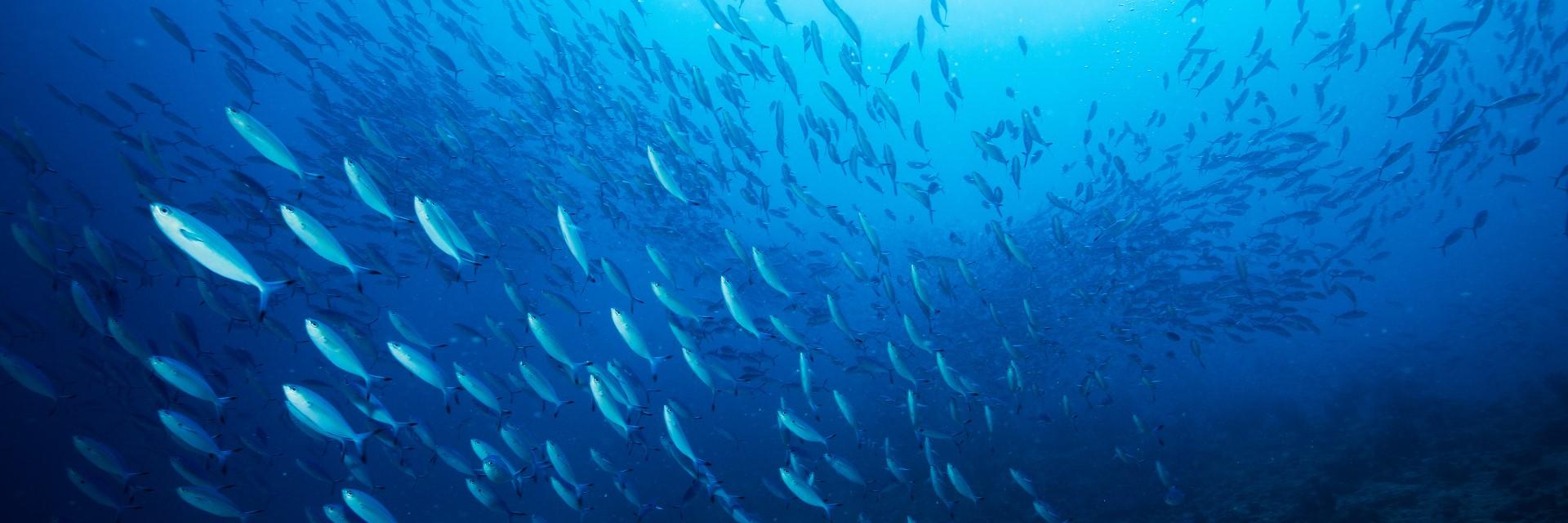Yaounde, 05 March 2025 (ECA) – In Central Africa, the blue economy remains an underdeveloped sector and according to experts, recent trends in key blue economy industries reveal pressing challenges: declining fish catches and income levels due to overfishing and climate change. Furthermore, the region has a historically uncompetitive marine and river transport system, with ports accounting for only 6% of container traffic in Africa; and coastal and maritime tourism that remain underprioritized, with inadequate infrastructure and sectoral strategies.
To address these challenges, the ECA subregional office for Central Africa organized a session in collaboration with the Indian Ocean Rim States Association (IORA) on March 5, 2025, to discuss the advantages and challenges of transitioning to a climate-resilient Blue Economy in the region. The meeting discussed the ECA Blue Economy Valuation Toolkit (BEVTK), which provides a framework to assess the economic, social and ecological contributions of aquatic resources, thus supporting data-driven policymaking and promoting the sustainable development of resources in this sector and made recommendations to promote the use of the BEVTK.
“Despite having the greatest hydroelectric potential in Africa, the subregion only exploits 5%, contributing to a critical energy deficit that hampers industrialization and sustainable development,” said Raquel Frederick, Economist at the ECA's subregional office for Central Africa.
This is the case in Zanzibar, where the BEVTK shows that in 2022, the annual gross added value generated by the blue economy will have grown by 35% compared to 2021. For mainland Tanzania, the BEVTK estimates the cumulative annual gross value added generated by the blue economy between 2015 and 2020, at 7.7 billion dollars, including 274.5 million dollars for the transport and storage sector alone.
The experts emphasized the importance of experience-sharing between East and Central African states, as well as between regional organizations such as ECCAS, EAC, and IORA. They also highlighted the need for capacity building on the Blue Economy, particularly on the BEVTK, and the development of national Blue Economy statistics, which can serve as a foundation for the toolkit’s assessments.
Asiya Maskaeva, Economic Advisor in the Planning Commission of the Office of the President of the United Republic of Tanzania, underscored the need for broad stakeholder engagement, including coastal communities, higher education institutions, and civil society.
“As Africa and the Indian Ocean region continue to harness the potential of blue resources, the need for reliable data and assessment tools becomes ever more urgent. For nearly a decade, the ECA has been committed to helping member states, particularly in East Africa, develop their blue economy strategies, strengthen policy frameworks and, more recently, with the Blue Economy Valuation Toolkit, provide practical tools to quantify the value of blue resources,” emphasized Jean Luc Mastaki, Director of the ECA's Sub-Regional Office for Central Africa.
To domesticate this tool in Central Africa and consolidate it in East Africa, Jean Luc Mastaki calls for the strengthening of the partnership with IORA: “This collaboration began with our East Africa office, and we look forward to extending it to Central Africa, recognizing the importance of intra-regional and South-South cooperation, as well as shared learning to advance the blue economy agenda in Africa”.
Beyond the economic interest of developing blue resources, acting to ensure healthy and productive blue resources relates to the urgency of accelerating progress towards SDG 14 (Life Under Water) and related goals.
In closing remarks, Andrew Mold, Acting Director of ECA’s subregional office for Eastern Africa, underlined the critical role of the Blue Economy in Africa’s sustainable development and the importance of data-driven policymaking. He highlighted ECA’s commitment to capacity building and regional cooperation, encouraging continued engagement to expand the use of the BEVTK across Africa.
Over 100 participants from 43 countries joined the two-hour virtual event, representing government, private sector, civil society, and development partners.
Zacharie Roger MBARGA - Communications Officer
United Nations Economic Commission for Africa
637, rue 3.069, Quartier du Lac, Yaoundé, Cameroon
Tel: (+237) 222504348
E-mail: zacharie.mbargayene@un.org
Issued by:
Communications Section
Economic Commission for Africa
PO Box 3001
Addis Ababa
Ethiopia
Tel: +251 11 551 5826
E-mail: eca-info@un.org

